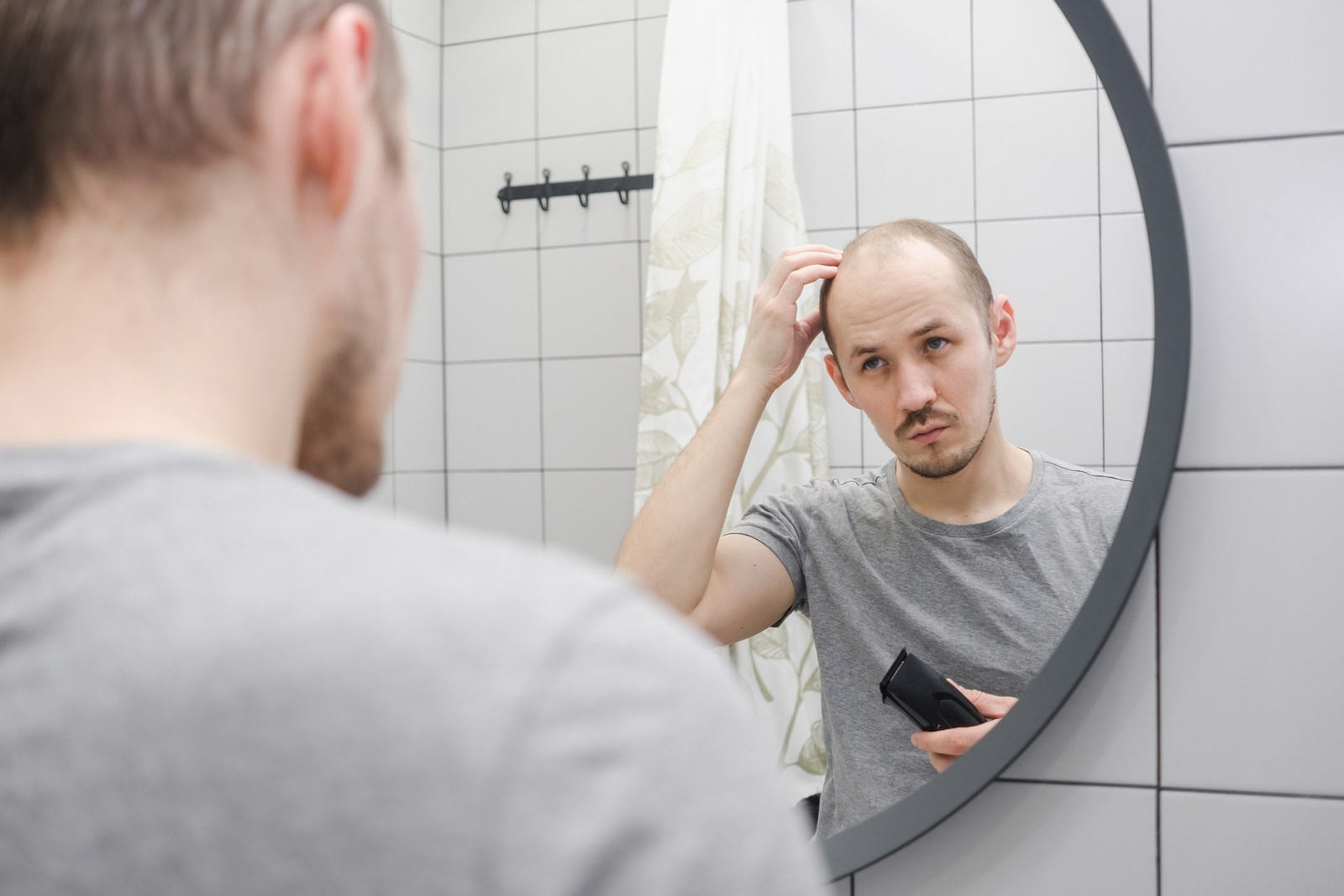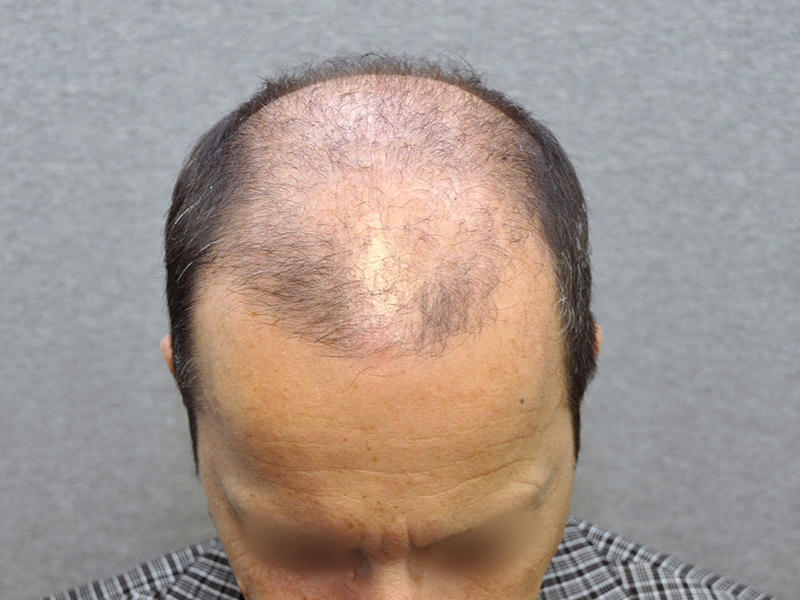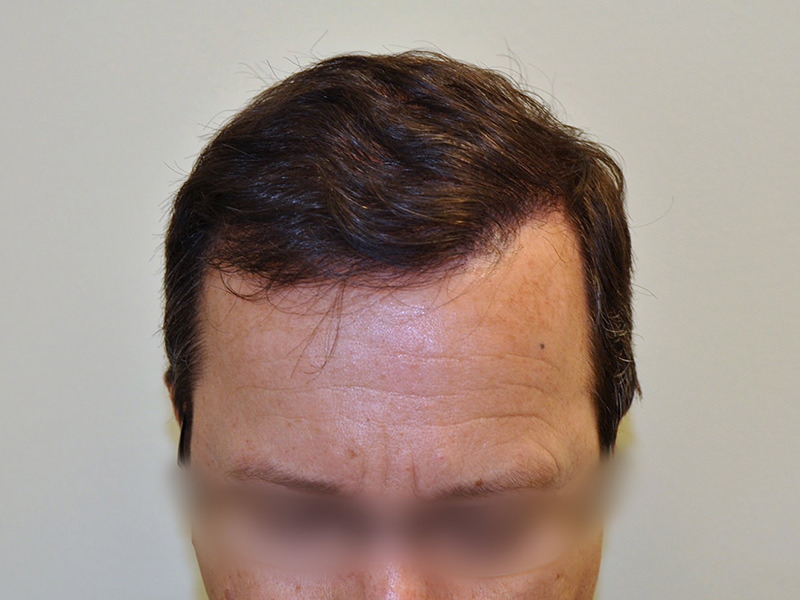
Why Is My Hair Thinning in My 20s?
A Guide by Toronto Experts for Men and Women Experiencing Hair Loss.
Thinning hair in your twenties can be alarming and impact your self-confidence. Hair loss isn’t exclusive to older people; it can happen at any age, including your early to mid-twenties. If you’re suffering from hair loss, you’re not alone, and there are many solutions to help you manage or even reverse the trend.
In this guide, we’ll explore the potential causes of hair loss in your twenties and the best ways to deal with it, with advice from Toronto hair transplant clinic experts Dr. Philip Solomon and Dr. Mark Korman.
Causes of Hair Loss in Your 20s
Hair loss in your 20s can result from various factors, with genetics being the most common culprit. Here are some common reasons for early hair loss:
-
Male pattern baldness
Also known as androgenetic alopecia, this hereditary condition can affect men in their teens or twenties as well as women. A receding hairline and thinning of the crown and front of the scalp characterize it.
-
Diet and nutrition
Your hair reflects your general state of health. A poor diet lacking essential nutrients can lead to hair loss. Incorporate more protein-rich foods, such as lean meats, eggs, and beans, into your meals. The healthy fats in avocados and nuts, as well as vitamins and minerals such as biotin, zinc, and iron, are essential for healthy hair.
-
Stress
Stress-induced hair loss is a real phenomenon that can affect young adults. Excessive stress can push hair follicles into a resting phase, resulting in hair loss a few months later. Disorders such as trichotillomania, which involves pulling out one’s hair under stress, can also be the cause of baldness.
-
Traumatic experiences
High levels of stress and trauma can lead to a type of hair loss known as telogen effluvium. This condition is often temporary but can be distressing. Recovery requires time and attention to general well-being.
-
Medical conditions
Conditions such as thyroid imbalances, polycystic ovary syndrome (PCOS) and autoimmune diseases such as alopecia areata can cause hair loss. It is essential to identify and treat the underlying condition.
-
Hormonal changes
Hormonal imbalances can affect hair growth. High levels of estrogen and progesterone can stimulate hair growth, while high dihydrotestosterone (DHT) levels can shrink hair follicles, leading to hair loss. This process, called miniaturization, can lead to permanent hair loss if left untreated.
-
Medications
Certain medications can interfere with the normal growth cycle of hair follicles and cause hair loss. Chemotherapy drugs, anticoagulants, antidepressants and acne medications are known to have this effect. Sometimes, hair loss may be temporary, resolving when treatment is stopped.
What Can You Do About Hair Loss?
Lifestyle changes
Lifestyle changes can promote healthy hair growth. Reducing stress, eating a balanced diet and avoiding smoking (including vaping) can positively impact hair health. A nutritious diet of essential vitamins and minerals promotes hair growth, while stress management helps prevent stress-related hair loss.
Seek expert medical advice.
Consulting a dermatologist or hair loss specialist is a practical approach. They can determine the cause of your hair loss and recommend treatments such as minoxidil or finasteride, which can slow or even reverse hair loss.
Consider a hair transplant.
For a lasting solution, consider a hair transplant. This procedure involves transferring hair follicles from part of the scalp to thinning areas. Although more invasive, it can offer considerable and lasting results.
In the hair transplant Toronto clinic by Dr. Philip Solomon and Dr. Mark Korman, we specialize in diagnosing and treating hair loss in young adults. If you’re in your 20s and experiencing hair loss, we encourage you to contact our clinic for a comprehensive assessment and personalized treatment plan.
Book a consultation by visiting – Your hair transplant experience or call us at – (905) 764-7799


